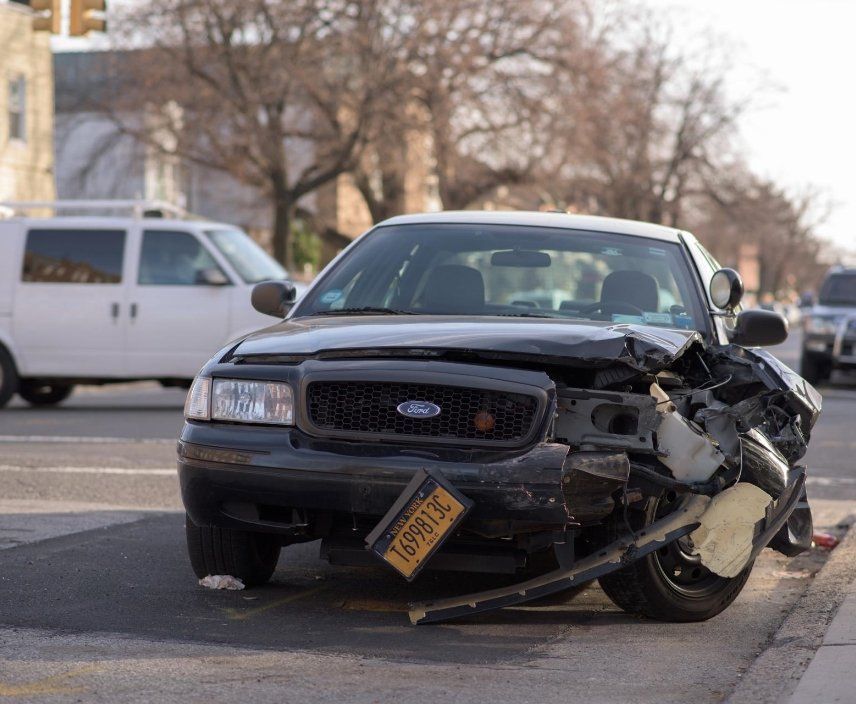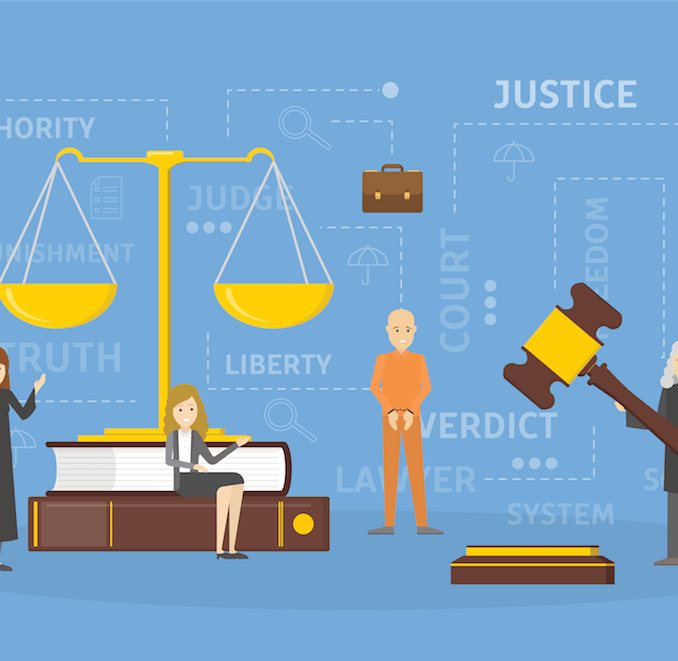Getting Specific With Special Actions in Phoenix, AZ
PROFESSIONAL DUI APPEALS LAwyer IN Scottsdale and PHOENIX, AZ
If you want your best chance to convince a higher court – to fix a trial court’s ruling before a conviction – then you’re in the right place.
Ready to Fix This?
Substantial Due Process Violations
Fifth Amendment
No person shall be held to answer for a capital, or otherwise infamous crime, unless on a presentment or indictment of a Grand Jury, except in cases arising in the land or naval forces, or in the Militia, when in actual service in time of War or public danger; nor shall any person be subject for the same offence to be twice put in jeopardy of life or limb; nor shall be compelled in any criminal case to be a witness against himself, nor be deprived of life, liberty, or property, without due process of law; nor shall private property be taken for public use, without just compensation.
Substantive due process. See Fifth and Fourteenth Amendments, United States Constitution, and Article II, section 4 of the Arizona Constitution.
Jurisdiction
The Arizona Court of Appeals has jurisdiction to hear and decide petitions for special actions that are brought pursuant to the rules of procedure for special actions. See Arizona Rules of Procedures for Special Action, Rules 1, 3, 4 and 7.
This Court of appeals is appropriate to consider this Petition as it arises out of a case in the Superior Court for the County of Maricopa. See Ariz. R. Proc. Sp. Act., R. 1; see also Arizona Revised Statutes, Section12-120.21(A)(4) (“[t]he court of appeals shall have: … jurisdiction to hear and determine petitions for special actions brought pursuant to the rules of procedure for special actions, without regard to its appellate jurisdiction.”)
Special action jurisdiction “is frequently accepted when under no rule of law can a trial court’s actions be justified.” See King v. Superior Court, 138 Ariz. 147, 149-150, 673 P.2d 787, 789 (1983).
No Equally Plain and Adequate Remedy
No “equally plain, speedy, and adequate remedy by appeal.” Rule 1(a), Arizona Rules of Procedure for Special Actions; Gilbert Prosecutor’s Office v. Foster, 245 Ariz. 15, 17, ¶ 5, 424 P.3d 416, 418 (App. 2018).
Claims of Privilege
Remand for probable cause findings
Bail issues
Judicial orders requiring discovery that present problems beyond inconvenience
Procedural rulings that, under the facts, cannot be effectively appealed
State v. Bejarano, 219 Ariz. 518, ¶ 4, 200 P.3d 1015, 1017 (App. 2008): order granting defendant’s motion to preclude state’s witness from testifying at trial not appealable.
Statewide Importance and Likely to Recur
Haywood Secs., Inc. v. Ehrlich, 214 Ariz. 114, ¶ 6, 149 P.3d 738, 739 (2007): The issue raised here is of statewide importance and one that is likely to recur due to the state’s reliance on wiretap evidence in criminal prosecutions.
Pure Questions of Law
State v. Nichols, 224 Ariz. 569, ¶ 2, 233 P.3d 1148, 1149 (App. 2010): the issue involves a pure question of law, further supporting our acceptance of special action jurisdiction.
Arbitrary and Capricious Abuses of Discretion
Special Actions are also appropriate when there is an issue as to “[w]hether a determination was arbitrary and capricious or an abuse of discretion.” Ariz. R. Proc. Sp. Act., R. 3(c).
The 3 Questions
The Rules limit review by Special Action to three questions. Ariz. R. P. Spec. Actions 3.
Respondent’s failure to exercise discretion under a preexisting duty or to perform a duty required by law entailing no discretion.
Respondent proceeding or threatening to proceed without or in excess of jurisdiction or legal authority.
Whether a determination was arbitrary and capricious or an abuse of discretion.
Specific Situations Requiring Review
Grand Jury Challenges
“To obtain review of a denial of redetermination of probable cause, a defendant must seek relief before trial by special action.” State v. Murray, 184 Ariz. 9, 32 (1995).
If a person convicted, he has no right to appeal denial of his motion to remand. Bashir v. Pineda, 226 Ariz. 351, 353, 248 P.3d 199, 201 (App. 2011).
Rule 31.21. Petition for Review
Timing
A party must file a petition for review no later than 30 days after the Court of Appeals enters its decision, unless a party files a timely motion for reconsideration in the Court of Appeals and, in that event, a party must file a petition for review no later than 15 days after the motion’s final disposition.
Contents
A petition should contain concise statements of:
the issues that were decided by the Court of Appeals that the petitioner is presenting for Supreme Court review. The petition must also list, separately and without argument, additional issues presented to, but not decided by, the Court of Appeals that the Supreme Court may need to decide if review is granted.
the facts material to a consideration of the issues presented to the Supreme Court for review, with appropriate references to the record on appeal.
No evidentiary matter should be included if it is not material to proper consideration of the issues. If an evidentiary matter is material, the party must include a reference to the record where that evidence appears, as provided in Rule 31.10(d).
the reasons the petition should be granted, which may include, among others, that no Arizona decision controls the point of law in question, that a decision of the Supreme Court should be overruled or qualified, that there are conflicting decisions by the Court of Appeals, or that important issues of law have been incorrectly decided.
Form and Length of Petition
Form
The caption of the petition must designate the parties as designated in the caption of filings in the Court of Appeals. The formatting requirements of Rule 31.6(b) apply to a petition, a cross-petition, and a response to a petition or cross-petition.
Length
A petition, a cross-petition, or a response to a petition or cross-petition must not exceed 3,500 words.
Certificate of Compliance
A petition, a cross-petition, or a response to a petition or cross-petition must include a certificate of compliance as shown in Form 30. A party preparing this certificate may rely on the word count of the processing system used to prepare the petition, cross-petition, or response.
Service
A party filing a petition, a cross-petition, a response, a reply, or an appendix must serve a copy of the document in the manner provided in Rule 31.13(d) on all parties who were entitled to service in the Court of Appeals.
The party also must file and serve a certificate of service in the manner provided in Rule 31.13(d)(2).
"Lawrence represents very high-profile clients who greatly depend on a good outcome, and this guy will deliver.
This is a prosecutor's worst nightmare, and it should be that way if you need an attorney."
- David E.
Real Client's Husband, Phoenix, AZ
Hiring an Experienced Phoenix DUI/DWI Attorney
Arizona DUI law is extremely complicated and has severe consequences. DUI law is commonly referred to as a minefield. An attorney must be competent in the Arizona Rules of “Criminal” Procedure, the Arizona Rules of Evidence, the United States and Arizona Constitutions, and the Arizona Department of Motor Vehicles Rules and Regulations.
An attorney cannot do anything for you unless he or she has extensive experience in these areas. Police officers are only human and do commit legal errors. However, only an experienced DUI attorney will be able to find these errors and use them to help his or her client.
You should choose an experienced DUI attorney for the same reason you should choose a qualified doctor. If you break your wrist, you go to a doctor that specializes in wrist injuries. When you are charged with a DUI, you should hire a qualified DUI attorney.
An experienced Arizona DUI attorney can analyze your case for legal errors and defenses. He or she can have blood samples independently analyzed, look for suppression issues, review calibration / COBRA records of breath machines, find the right expert witnesses for your trial, and assist you with your driver’s license issues.
For more information, call our office at (602) 494-3444 or visit our contact page.
What Real People Are Saying
That is, DUI cases actually dismissed. Verifiable not guilty verdicts. Blood alcohol evidence truly suppressed as witnessed by judges, other lawyers, and newspapers.
Real Client's Husband, Phoenix, AZ
"Lawrence represents very high-profile clients who greatly depend on a good outcome, and this guy will deliver.
This is a prosecutors' worse nightmare, and it should be that way if you need an attorney."
- David E.
REAL CLIENT, PHOENIX, AZ
It was miracle!... A lot of people don't really understand the benefit of having an attorney who used to be a prosecutor. They know all the little tricks and scare tactics the state has as opposed to just hiring an attorney who is a little fish in a big pond."
- Joe C.
Contact Us Today!
For more information, call our office at (602) 494-3444 or fill out the form and we will get back to you.
Contact Us
We will get back to you as soon as possible.
Please try again later.
Legal Coffee Blog | Arizona DUI



DUI Library
The best DUI defense stuff that only a few know and none want to share. A one of a kind annotated resource for lawyers, people accused, or anyone who wants to see what’s going on in our justice system with DUI cases…and how to fix it.

Contact Information
Office Hours
- Mon - Fri
- -
- Sat - Sun
- Closed
What Happens After You Reach Out
A team member will begin reviewing your case.
We will contact you to ask questions and go over your options.
We will determine, together with you, what makes sense for the next step for you and your family to take.
Ready to Fix This?
Contact Us
We will get back to you as soon as possible.
Please try again later.
OUR SERVICES
QUICK LINKS
CONTACT US



